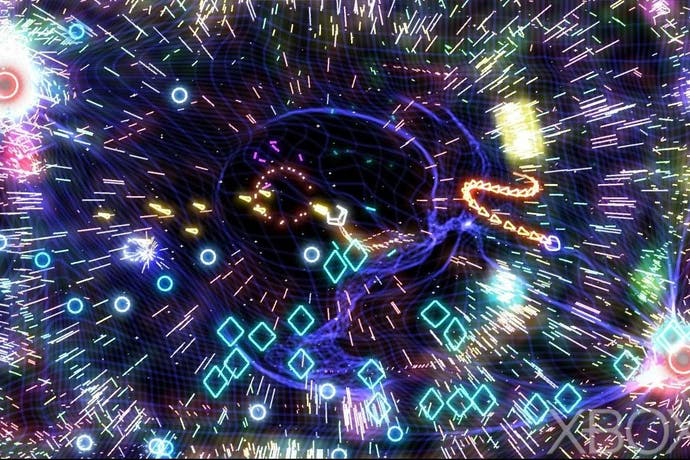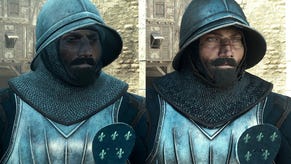Xbox 360 at 10: How XBLA changed the industry forever
Live and unplugged.
The Xbox 360 turned 10 this week and there's a lot to admire about how Microsoft's second console forever changed the gaming landscape. It brought us all sort of neat goodies like a multimedia dashboard, the almost definitive gamepad, and loads of influential titles like Gears of War, Mass Effect and Crackdown. But my favourite aspect of the Microsoft's decade old console was Xbox Live Arcade (XBLA for short), a digital service archiving older titles as well as offering new and exciting independently made adventures at budget prices.
XBLA began as little more than a novelty on the original Xbox in December 2004, but it only ever distributed 27 old arcade games on Microsoft's first console. It wasn't until the almost-always online era of the Xbox 360, when high speed internet became the norm, that XBLA turned into the expansive showcase we know it as today.
Initially XBLA primarily catalogued older arcade games, with Hexic HD a pack-in title tucked away on the console's hard drive. Many of XBLA's launch titles were ports of 80s Midway games like Joust, Smash TV and Gauntlet. Shortly thereafter, big name publishers like Capcom, Konami, and Namco Bandai got in on this by releasing archived titles like Street Fighter 2: Hyper Fighting, Frogger and Galaga. As the service rose in popularity, publishers were putting more ambitious evergreen classics on the platform like Doom, Castlevania: Symphony of the Night, and Marathon: Durandal.
Eventually this nostalgic niche grew from ports to remasters with titles like Rez HD, Alien Hominid HD, and Trials HD landing on Microsoft's digital marketplace. This not only gave us prettier versions of already beloved games, but ensured that some rare retail titles like Rez and Ikaruga, which tended to cost quite a lot of coin on eBay, could be enjoyed by the masses.
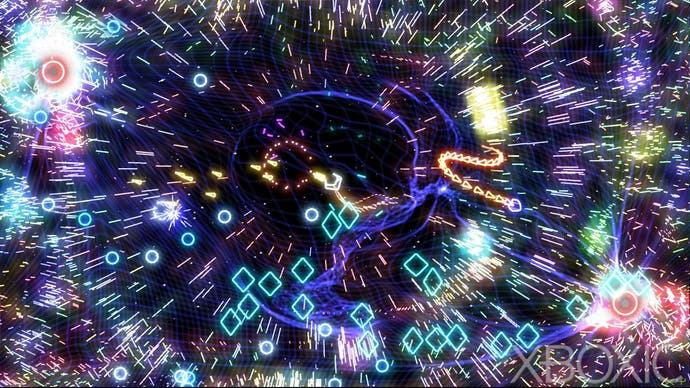
Perhaps the most influential game on the service, though, was Bizarre Creations' Xbox 360/XBLA launch title Geometry Wars. The simple twin-stick shooter premiered as a mini-game in Project Gotham Racing 2 for the original Xbox, and the warm reception it received saw it blossom into something else entirely. It was enough to inspire Bizarre Creations to spruce up the mini-game and sell it on its own, digitally, for £3.40 (or 400 Microsoft Points. Indeed Microsoft's proprietary currency was not one of the company's brightest ideas).
Yet XBLA was light on original titles in its early days, and it wasn't until about after three or so years that the service started to erupt with a flurry of creative content that more often than not emanated outside of the major studio space.
2008's Braid might be the most noteworthy example of this (all these years later, we're still awaiting Jonathan Blow's follow-up game The Witness.) This was later followed by more rags-to-riches success stories like Twisted Pixel's cartoony platformers The Maw and 'Splosion Man, Playdead's avante garde horror show Limbo, The Behemoth's massively successful multiplayer brawler Castle Crashers, and Team Meat's retro platformer Super Meat Boy.
Even big-name companies were getting into XBLA with Epic Games commissioning Chair Entertainment to make the flashy 2.5D "metroidvania" Shadow Complex; The Darkness developer Starbreeze surprised everyone by making an emotional $15 adventure called Brothers: A Tale of Two Sons, and even Just Cause developer Avalanche Studios would take time away from its AAA blockbusters to make the top-down vehicular shooter Renegade Ops.
So what was Microsoft's secret to success? According to Team Meat's Tommy Refenes, it was variety. "Before XBLA, games on consoles were almost exclusively AAA titles made by large companies, and while those are great, the variety offered is limited most of the time," the Super Meat Boy co-creator told us. "XBLA opened a door that blocked independent and smaller developers from the largest game consumers at the time. Games like Braid and Castle Crashers would have stood out as console games on their own, but the accessibility of the service put those games in the hands of tons of Xbox players at prices a quarter of what they are paying for other games on their system. That's why it exploded."
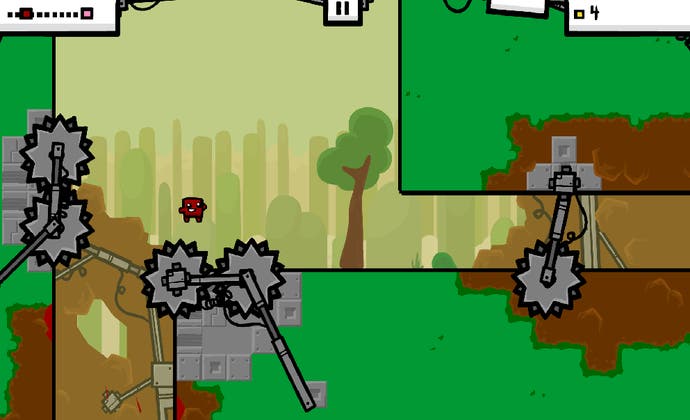
Team Meat's struggles with Microsoft are well documented in Indie Game: The Movie, but the bitterness has faded in recent times and both Refenes and his colleague Edmund McMillen are glad they premiered Super Meat Boy on Microsoft's console. "Super Meat Boy came out on XBLA first because that was the path to success at the time," Refenes explained. "At the end of 2009 / beginning of 2010 the downloadable space was still very new but clear winners had already emerged. PSN was struggling at the time and WiiWare was fading while XBLA and Steam were dominating. It's what made the most sense."
"I'm very glad we launched on XBLA," Refenes added. "If I had it to do over again, I would do it a little differently (mainly getting some things in contracts that weren't in contracts with Microsoft) but it still would have come to XBLA first because that's what they required from us in order to get our XBLA slot [in the heavily marketed autumn Game Feast promotion]. Our launch was less than ideal (as famously documented by me saying 'what the f*** is that?' to the screen in that one movie), but looking back the game still did extremely well on XBLA and it would have been a mistake not to put it on the platform."
McMillan explained that Super Meat Boy was originally planned as a WiiWare title, but after arrangements to get his previous game Gish on XBLA fell through, he finagled a contract to deliver Super Meat Boy instead. "Working with our producer Kevin [Hathaway] was amazing. But the business side of Microsoft wasn't," McMillen said of his experience. "We got a lot of push back and people projecting Super Meat Boy as a low level XBLA game that wasn't going to sell too well."
"XBLA played some hardball back then, and hell, maybe that's why they did well, but I honestly think the real reason XBLA boomed back then was Kevin," McMillen said of Hathaway, who also produced Castle Crashes and Braid.
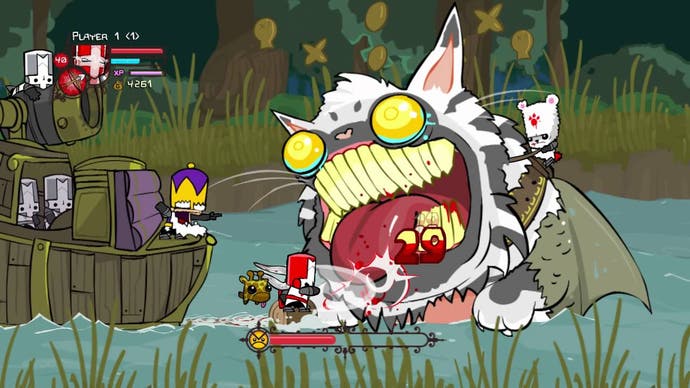
Castle Crashers and Battleblock Theater developer The Behemoth had less friction with Microsoft, but felt similarly about XBLA's success. "We think XBLA hit a kind of sweet spot of happy coincidences that allowed it to be the champion of downloadable titles," said The Behemoth co-founders John Baez & Tom Fulp. "Although LIVE Arcade existed on the original Xbox, it was cumbersome and easy to dismiss. We're not sure who at Microsoft was responsible for allowing it to continue and become refined with the 360, but who ever that is he or she should get a gold star.
"Downloadable titles were just not thought of as a serious way to deliver games on consoles at that time. At launch, the retail disk games on 360 were few and far between but LIVE arcade had a full stable of titles that could be enjoyed right away. The early XBLA indie devs had huge conversion rates, legitimising the platform for smaller developers. As games were added to the marketplace, it attracted more gamers and the service grew into something that MS marketing could sink their teeth into.
"We were very fortunate to be included in the first Summer Of Arcade and the strength of those first titles really helped the service overall," the developer added. "Castle Crashers was a fun, lighthearted take on co-op gaming that could be enjoyed with friends who were not sitting on the same couch. There really wasn't anything on XBLA at the time that was as big and accessible, so sales were good. Since the leaderboards logged everyone who played, it was easy for people to see that lots and lots of players were enjoying the title. All the top XBLA titles' sales numbers became a big enough story that gaming press began to cover it and that in turn increased the number of people joining the service."
Of course, XBLA wasn't the only downloadable service on the block, but it was the most aggressive at targeting a robust array of content. The Behemoth told Eurogamer that it pitched Alien Hominid HD to Sony, who turned it down as a PSN title. "It worked out well for us because we had great account managers at Microsoft who really loved Castle Crashers and Alien Hominid, and who were proud to put it on their system," the studio said of this fortuitous series of events.
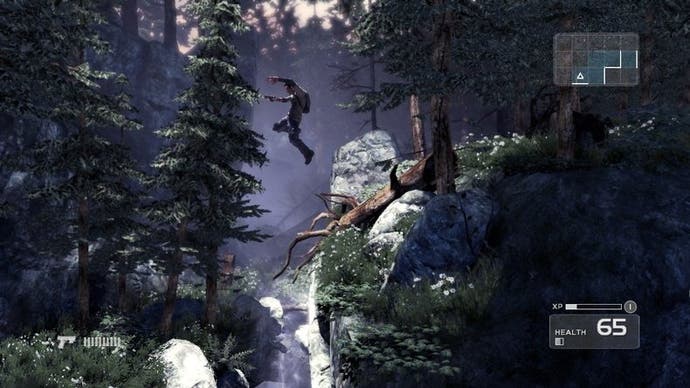
The Behemoth also noted that Valve wouldn't introduce Steam Greenlight, its community-voting for self-published independent titles, until 2012, while PSN "was not as usable as a storefront for finding and purchasing games". Clearly Microsoft did a strong job of courting creative content in XBLA's early years.
Eventually the rest of the industry caught up, of course. Steam is more popular than ever with no shortage of independent PC-borne successes (Minecraft, Gone Home, DayZ, etc) and Sony was eager to promote the self-publishing benefits of developing for PS4 while Microsoft was seemingly still set in its ways that were progressive for 2008, but not so much in 2013 when it revealed the Xbox One. Even Nintendo offered self-publishing perks for the Wii U, which were sadly too little to sway many into developing for a console with a limp install base. Microsoft took a bit of time to catch up to its old self, but it now offers self-publishing via its ID@Xbox program and has a pretty promising slate of indie games coming out like Below, Cuphead, and Inside. (Even Team Meat has made amends with the console manufacturer in the past few years. "The problems in the past I consider water under the bridge. I think they've learned from their mistakes and I know I have," Refenes told us.)
Regardless of which platform you favour now, it's impossible to deny that Microsoft had a huge influence on the video game industry through XBLA. The sheer variety of genres, price points, sizes and scopes shifted dramatically and Microsoft was front and center in allowing folks to run chainsaws through alien bugs one minute in Gears of War, then quietly reflect about their life experiences in Braid the next. XBLA taught us that 2D gaming still had legs, people still enjoy couch co-op, and that even major studios could take a punt on releasing something offbeat like the excellent Lara Croft and the Guardian of Light. XBLA wasn't without its kinks, as is to be expected when a corporation the size of Microsoft tackles an all new non-blockbuster digital market, but the end result has drastically shaped what we now play in the living room.
